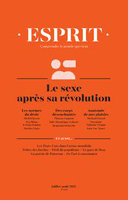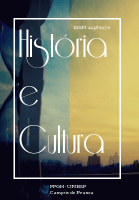
Open Library of Humanities
Scope & Guideline
Empowering Voices in Anthropology, Arts, and Culture
Introduction
Aims and Scopes
- Interdisciplinary Research:
The OLH encourages research that crosses traditional disciplinary lines, integrating insights from various fields such as literature, art, history, and social sciences. - Cultural and Historical Analysis:
Papers often explore cultural artifacts, historical narratives, and their implications for contemporary society, reflecting a commitment to understanding the past to inform the present. - Digital Humanities:
The journal has a strong focus on the intersection of technology and humanities, particularly through digital archiving, linked data, and the use of digital tools in research. - Critical Theory and Social Commentary:
OLH publications frequently engage with critical theory, examining societal issues such as race, gender, class, and politics through a humanities lens. - Artistic Practices and Representation:
The journal showcases research that investigates artistic practices across various media, considering how these practices shape and are shaped by cultural and political contexts.
Trending and Emerging
- Digital and Linked Humanities:
An increasing number of publications are focusing on digital humanities, including linked data and knowledge graphs, emphasizing the importance of technology in humanities research. - Intersectionality in Cultural Studies:
There is a growing trend towards exploring intersectional identities, particularly in relation to race, gender, and disability, reflecting a more nuanced understanding of cultural dynamics. - Public Engagement and Curatorial Practices:
Research examining the role of public curatorship and community engagement in cultural heritage is emerging, highlighting the need for inclusivity in historical narratives. - Critical Technologies and Society:
The journal is increasingly publishing works that critique the implications of technology on society, including issues of surveillance, machine vision, and digital representation. - Transnational and Global Perspectives:
Emerging themes often explore transnational narratives and global cultural exchanges, indicating a shift towards understanding local issues in a broader context.
Declining or Waning
- Traditional Literary Studies:
There seems to be a decline in papers focused on canonical literary analysis, with fewer studies dedicated to classical texts without contemporary contextualization. - Historical Narratives without Interdisciplinary Linkages:
Research that solely focuses on historical accounts without drawing connections to current issues or interdisciplinary perspectives appears to be less frequent. - Static Cultural Critique:
Papers that offer a purely descriptive critique of cultural artifacts, without engaging with contemporary implications or theoretical frameworks, are becoming less common. - Conventional Art History:
Traditional approaches to art history that do not incorporate technological or socio-political contexts are on the decline, as the journal shifts towards more dynamic analyses. - Localized Historical Studies:
Research that focuses solely on localized historical studies, without a global or comparative perspective, is becoming less prevalent in favor of broader, interconnected analyses.
Similar Journals

Middle East Journal of Culture and Communication
Charting New Territories in Middle Eastern StudiesMiddle East Journal of Culture and Communication is a vital scholarly platform published by BRILL, dedicated to fostering an understanding of cultural dynamics and communication pathways within the Middle East. Established in 2008, this journal delivers a rich array of interdisciplinary research spanning the fields of Arts and Humanities, Communication, Cultural Studies, Political Science, and Sociology. With an impact factor reflective of its commitment to high-quality scholarship, it currently ranks in various quartiles, including Q3 in Arts and Humanities (miscellaneous) and Q4 in Communication and Political Science, demonstrating its importance in the academic discourse surrounding these disciplines. The journal's open access policy ensures that critical insights and analyses are widely disseminated, catering to a global audience of researchers, professionals, and students alike. The Middle East Journal of Culture and Communication stands as an essential resource for those seeking to explore the intricate tapestry of cultural interactions in the region through rigorous academic inquiry.

Co-herencia
Advancing interdisciplinary dialogue in arts and humanities.Co-herencia, an esteemed academic journal published by UNIV EAFIT, is dedicated to advancing the fields of History, Literature and Literary Theory, Music, Philosophy, as well as the Visual Arts and Performing Arts. Since its launch as an Open Access journal in 2004, it has provided a platform for innovative research and interdisciplinary dialogue, facilitating the dissemination of knowledge from its base in Medellín, Colombia. With a commendable range of Scopus rankings, including a Q2 category in Literature and Literary Theory and Visual Arts and Performing Arts, Co-herencia is recognized as a vital resource for scholars aiming to explore cultural narratives and theoretical frameworks. It not only enriches academic discourse but also serves as a significant conduit for emerging ideas that connect art, culture, and social consciousness. Researchers, professionals, and students alike will find Co-herencia a necessary addition to their scholarly pursuits, emphasizing its critical role in the evolving landscape of the arts and humanities.

ESPRIT
Unveiling Insights from the Heart of ParisESPRIT is a well-established journal that has been contributing to the fields of Arts and Humanities, Political Science, and Sociology since its inception in 1973. Published in France and bearing the ISSN 0014-0759 and E-ISSN 2111-4579, ESPRIT provides a scholarly platform for research articles that delve into diverse cultural, political, and sociological themes, facilitating critical discourse among academics and practitioners. Although it currently operates under traditional access models, its relevance is underscored by its rankings in Scopus, including a Q4 classification across multiple categories, making it a key resource for those exploring nuanced academic landscapes. With an address located in the heart of Paris, ESPRIT draws from a rich cultural context that enhances its publication scope, poised to inspire and inform a global audience dedicated to the advancement of knowledge in the humanities and social sciences.

Historia e Cultura
Innovating Historical Discourse for a Global AudienceHistoria e Cultura is a distinguished open-access journal focusing on the dynamic and multifaceted exploration of history and culture within the context of the Humanities. Published by the UNIV ESTADUAL PAULISTA JULIO MESQUITA FILHO, FAC CIENCIAS HUMANAS & SOCIAIS, the journal serves as a vital resource for researchers, professionals, and students engaged in the fields of historical research and cultural studies. Since transitioning to open access in 2012, Historia e Cultura aims to democratize knowledge by providing free, unrestricted access to high-quality articles that foster scholarly exchange and innovation. Although the specific impact factor remains undisclosed, the journal is dedicated to contributing to the academic discourse through rigorous peer-reviewed research. Situated in Brazil, Historia e Cultura is well-positioned to address both local and global issues, encouraging critical engagement with cultural heritage and identity. Researchers and scholars are invited to submit their work, ensuring that diverse perspectives are represented in the study of our shared history.

SCHWEIZERISCHES ARCHIV FUR VOLKSKUNDE
Connecting Scholars to the Heart of Cultural StudiesSCHWEIZERISCHES ARCHIV FUR VOLKSKUNDE, with ISSN 0036-794X, is a vital resource for scholars and practitioners in the fields of Arts and Humanities and Cultural Studies. Published by G KREBS VERLAGSBUCHHANDLUNG AG in Switzerland, this journal plays a crucial role in advancing the discourse surrounding folk culture, traditions, and anthropology. Despite its current ranking in the Q4 category for both Arts and Humanities and Cultural Studies, the journal serves as an essential platform for disseminating unique research findings and insights, contributing to a well-rounded understanding of diverse cultural practices. Researchers, professionals, and students are encouraged to explore the rich content produced between 2008 and 2014, and from 2017 to 2023, which reflects a commitment to fostering a multidisciplinary approach to folklore studies. By addressing the complexities of cultural dynamics, the journal not only promotes scholarly engagement but also enriches the academic community’s appreciation of folk traditions.

LIBERTE
Unpacking Complex Narratives Through Scholarly InquiryLIBERTE is a distinguished academic journal that serves as a platform for critical thinking and scholarly discourse across various fields including Literature and Literary Theory, Philosophy, Sociology and Political Science, and Visual Arts and Performing Arts. Established in Canada and published by LIBERTE, this journal aims to foster intellectual exchange and explore the nuances of cultural and social narratives. Although it currently falls in the Q4 quartile across its categories, it is dedicated to advancing the conversation in the arts and humanities, providing a rich resource for researchers, educators, and students alike. With an ISSN of 0024-2020 and an active publication cycle running from 2002 to 2024, LIBERTE welcomes contributions that challenge prevailing ideologies and reflect innovative perspectives. While the journal is not open access, its value in promoting academic inquiry within its communities cannot be overstated.

Transcultural Studies
Bridging Disciplines to Understand Cultural InteractionsTranscultural Studies is an innovative open-access journal published by Universität Heidelberg under the Exzellenzcluster Asien & Europa im globalen Kontext. Since its inception in 2010, the journal has championed interdisciplinary research that explores the complexities of transcultural interactions and their implications across various contexts, making significant contributions to the fields of Arts and Humanities and Social Sciences. Despite currently holding a Q4 rank in both categories, the journal is an essential platform for emerging voices and groundbreaking ideas, encouraging the exchange of theories and methodologies. With its commitment to accessibility and wide-ranging perspectives, Transcultural Studies aims to foster a deeper understanding of global cultures and social dynamics. Researchers, students, and professionals alike are invited to explore its rich content and contribute to advancing this evolving field.

Quaestiones Disputatae
To Ignite Interdisciplinary ConversationsQuaestiones Disputatae is an innovative academic journal published by Universidad Santo Tomás that focuses on interdisciplinary research and critical discussions across various fields of study, including philosophy, theology, social sciences, and humanities. With an Open Access model available since 2007, the journal aims to promote broad dissemination of scholarly works, ensuring that emerging and established researchers have the opportunity to share their findings with a wide audience. Although specific metrics such as H-Index and Scopus ranks are currently unavailable, the journal is recognized for its commitment to fostering academic dialogue and enhancing intellectual exchange, making it a vital resource for researchers, professionals, and students dedicated to advancing knowledge and understanding in their fields. Based in Colombia, Quaestiones Disputatae provides a platform for diverse voices and perspectives, enriching the global academic community.

Metacritic Journal for Comparative Studies and Theory
Unveiling Insights in Imagination and Interpretation.Metacritic Journal for Comparative Studies and Theory is a premier scholarly publication focusing on interdisciplinary research within the fields of Arts and Humanities, as well as Social Sciences. Published by UNIV BABES-BOLYAI, FAC LETTERS, PHANTASMA CTR IMAGINATION STUDIES, this Open Access journal has made significant strides since its inception in 2015, providing a platform for innovative comparative studies that inspire critical discourse. With an impressive Q2 ranking in both Arts and Humanities and Social Sciences, the journal showcases high-quality research that engages contemporary issues and theoretical frameworks. Its Scopus rankings further highlight its impact, with a noteworthy position in the 78th percentile for Arts and Humanities and 40th percentile for Social Sciences. As an accessible resource for researchers, professionals, and students, the journal encourages contributions that navigate complex themes of interpretation and imagination that resonate within and beyond Romanian scholarship. Discover the latest insights and foster collaborations in a dynamic academic landscape.

Teksty Drugie
Fostering Critical Thought in the Arts and HumanitiesTeksty Drugie is a premier academic journal dedicated to the field of Literature and Literary Theory, published by the Polish Academy of Sciences, Institute of Literary Research. With its issuance beginning in 2008 and extending intermittently to 2020, this journal has been a significant contributor to literary scholarship in Poland and beyond. The journal holds a commendable Q2 ranking in its category for 2023, indicating its influential status amongst peers in the Arts and Humanities realm, and an impressive Scopus rank of #736 out of 934 in the Literature and Literary Theory domain, with a 21st percentile ranking. Researchers and students will find this journal invaluable for its rigorous academic standards and insightful contributions to contemporary literary discourse. While traditionally available through subscription, Teksty Drugie remains an essential resource for those engaged in the study of literature, offering critical theoretical perspectives and a forum for scholarly debate. The journal is located at ul. Nowy Świat 72, Pałac Staszica, Room 1, Warszawa 00-330, Poland.